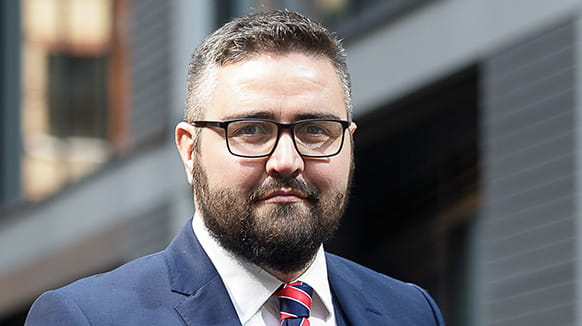The Economic Crime and Corporate Transparency Act 2023 (the “Act”) received Royal Assent on 26 October 2023.
The provisions of the Act are not immediately in effect, and it is clear that detailed subordinate legislation and significant amendments to the operating processes of Companies House will be required in order to give full effect to the Act.
That being said, operators and service providers in structured finance and debt capital markets transactions would be well-advised to consider the Act’s provisions and to prepare accordingly. The Act applies equally to all relevant UK companies (and other corporate entities), including special purpose vehicles (“SPVs”) (widely used in such transactions) as well as issuers and operating companies (and other corporate entities).
Companies House Reform
The Act represents a significant change to the role that Companies House plays as registrar of companies (and other corporate entities) in the UK; taking it from a passive registrar of information given to it into a more active and engaged regulator of companies (and other corporate entities) with a stated objective of promoting and maintaining the integrity of the information on the register and to disrupt and minimise the extent to which companies (and other corporate entities) are utilised in the carrying out of unlawful activity.
In order to discharge this new objective, Companies House will, among other things, be given wide-ranging powers, including:
- Setting the terms on which information submitted to it is verified as accurate
It is expected that Companies House will require compulsory identity verification for all directors and “Persons with Significant Control”. More details of these requirements will follow in subordinate legislation and guidance from Companies House, but it is expected that some firms will be authorised to certify for themselves and others (assuming a level of pre-authorisation with Companies House) which we would expect corporate service providers and other professionals operating in the structured finance and debt capital market space to seek as part of their offer to issuers and sponsors;
- New powers to share data
Companies House will have the enshrined power to share its information with any persons for purposes connected with Companies House’s functions or with other public authorities for purposes connected with their respective functions. We would anticipate that will include the FCA, the PRA and others with a view to ensuring that all regulatory authorities involved or potentially involved in the regulation of a structured finance and debt capital market transaction can share information quickly;
- Expanding the power to remove material from the register
Companies House will have greater powers to unilaterally change the information on the register and to take action against those who persistently fail to provide an appropriate level of information.
Preventing fraud
The Act introduces a new strict liability corporate offence for failure to prevent fraud – that is to say, in certain circumstances, a company will be liable for failing to prevent fraud unless it can prove that it had in place, at all appropriate times, reasonable fraud prevention procedures.
The new offence can be committed only by “large organisations”, meaning a company (or other corporate entity) which exceeds two or more of the following:
1. 250 employees;
2. £36 million annual turnover; and
3. £18 million in total assets.
What constitutes a reasonable fraud prevention procedure will be consulted on next year and it is expected that the provisions in the Act related to this new offence will not come into effect until after that consultation, most likely towards the end of 2024 or in 2025.
While that is still some time away, it is worth noting that this offence is a strict liability offence, for which the burden of proving innocence falls on the company (or other corporate entity) so accused, rather than on the regulator or court proving guilt. More detail on the required procedures will follow from the consultation but we would expect that in order to be considered a “reasonable fraud prevention procedure” such procedure must reflect the complexities of the structure to which it is being applied – that is to say, the more complex the financing structure, the more robust and detailed the fraud prevention procedure would be expected to be.
In the context of a structured finance transaction or a debt capital market transaction involving an SPV, especially those SPVs incorporated and maintained by a corporate services provider, that SPV often has very little visibility of and control over the entire structure and there is certainly a risk that (i) if any such SPV (and/or its board of directors) takes a laissez-faire approach to managing or operating in such structures and (ii) a fraud is committed (even unbeknown to that SPV), that SPV could be at significant risk, once these provisions are in effect. With that in mind, service providers, would be well-advised to start the process of assessing what procedures it will likely require, given the complexity of the structures and transactions they are currently or are likely to be involved in.
There is no reference in the Act to any transitional period for these provisions nor any carve-out for pre-existing transactions or arrangements, although this may become clearer during consultation or implementation.
Corporate director prohibition
The Small Business, Enterprise and Employment Act 2015 (the “2015 Act”) set out the UK’s ban on the use of corporate directors, but those provisions have never come into force.
The Government has now confirmed that the ban on corporate directors will come into force simultaneously with the reforms of the Act, so we expect that ban to be imposed at some point in 2024 (for new companies) and 12 months thereafter for existing companies (there being a 12-month transition period set out in the 2015 Act).
Managing the risk of liability through the use of corporate directors will not be an option when these provisions come into effect. In the context of a structured finance transaction or a debt capital market transaction involving an SPV incorporated and maintained by a corporate services provider, natural persons will be required on the board of that SPV which, taking into account the existing duties of directors and the above, is not without risk for those individuals so appointed.
The Debt Capital Markets team at Haynes Boone represents UK and foreign debt issuers, underwriters, trustees and other service providers in a full range of public and private debt capital markets transactions, from EMTN programmes to private placements and corporate bonds, including green bonds and social bonds. Our advice typically includes structuring offering terms, preparing prospectuses and managing their approval with the applicable regulator, drafting other offering documentation, overseeing the listing or admission to trading process and liaising third parties in respect of ESG (environmental, social and governance) accreditations.

